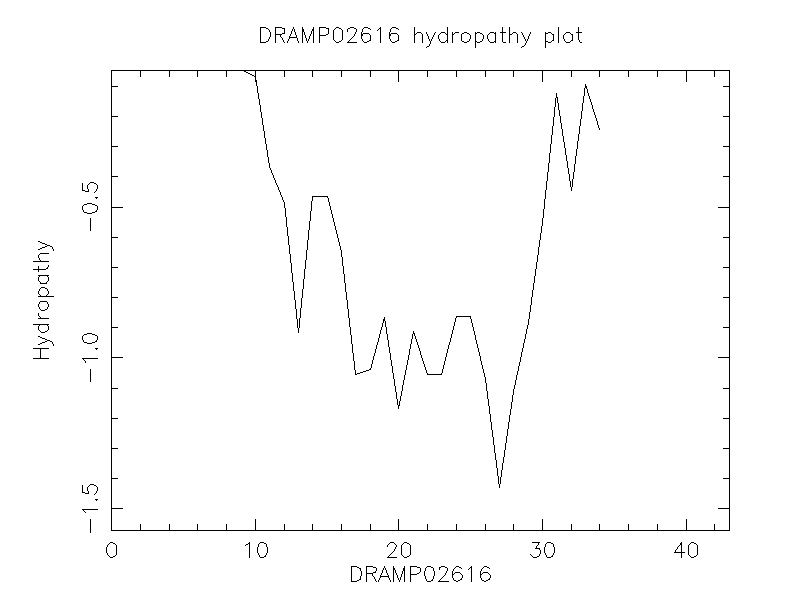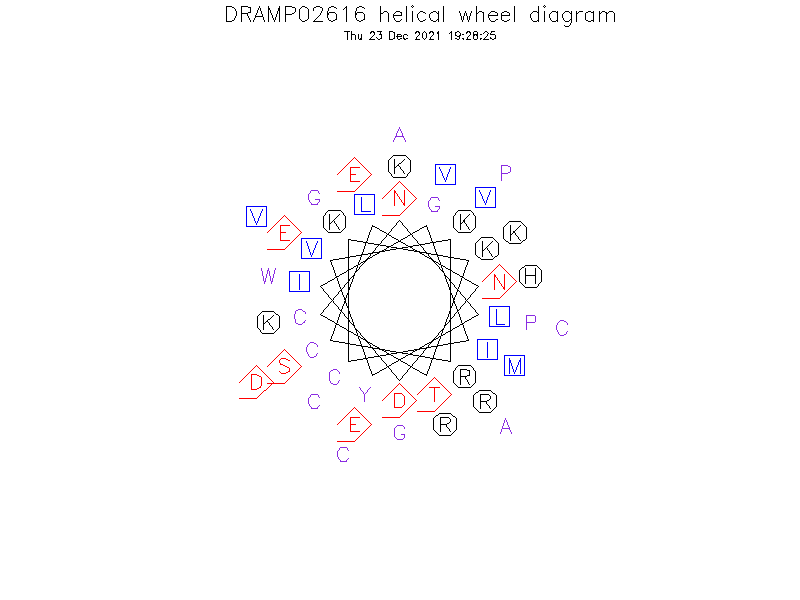General Information
-
DRAMP ID
- DRAMP02616
-
Peptide Name
- Beta-defensin 126 (Defensin, beta 126; Epididymal secretory protein 13.2, ESP13.2; primates, mamm
-
Source
- Macaca fascicularis (Crab-eating macaque) (Cynomolgus monkey)
-
Family
- Belongs to the beta-defensin family
-
Gene
- DEFB126
-
Sequence
- NLYVKRCLNDIGICKKTCKPEEVRSEHGWVMCGKRKACCVPAD
-
Sequence Length
- 43
-
UniProt Entry
- Q9BEE3
-
Protein Existence
- Transcript level
Activity Information
-
Biological Activity
- Antimicrobial, Antibacterial
-
Target Organism
- No MICs found in DRAMP database
-
Hemolytic Activity
-
- No hemolysis information or data found in the reference(s) presented in this entry
-
Cytotoxicity
-
- Not included yet
-
Binding Target
- Not found
Structure Information
-
Linear/Cyclic
- Not included yet
-
N-terminal Modification
- Not included yet
-
C-terminal Modification
- Not included yet
-
Nonterminal Modifications and Unusual Amino Acids
- Not included yet
-
Stereochemistry
- Not included yet
-
Structure
- Bridge
-
Structure Description
- Not found
-
Helical Wheel Diagram
-
PDB ID
- None
-
Predicted Structure
- There is no predicted structure for DRAMP02616.
Physicochemical Information
-
Formula
- C207H343N63O59S7
Absent Amino Acids
- FQ
Common Amino Acids
- CK
Mass
- 4882.81
PI
- 8.87
Basic Residues
- 10
Acidic Residues
- 5
Hydrophobic Residues
- 11
Net Charge
- +5
-
Boman Index
- -85.34
Hydrophobicity
- -0.437
Aliphatic Index
- 67.91
Half Life
-
- Mammalian:1.4 hour
- Yeast:3 min
- E.coli:>10 hour
Extinction Coefficient Cystines
- 7365
Absorbance 280nm
- 175.36
Polar Residues
- 14
DRAMP02616

Comments Information
Function
- Has antibacterial activity (Potential).
Tissue specificity
- High-level and epididymis-specific expression. Detected in epithelial cells lining the efferent ductules, initial segment, and cauda regions of the epididymis, but not on spermatozoa.
PTM
- Contains three disulfide bonds (By similarity).
Literature Information
- ·Literature 1
-
Title
- The novel epididymal secretory protein ESP13.2 in Macaca fascicularis.
-
Pubmed ID
- 10491631
-
Reference
- Biol Reprod. 1999 Oct;61(4):965-972.
-
Author
- Perry AC, Jones R, Moisyadi S, Coadwell J, Hall L.

